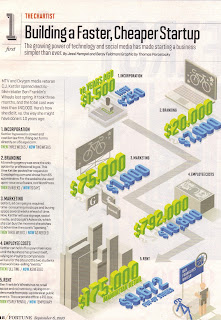 |
| Growing health care affordability gap |
I am not singling out UPS however they were in the news this week because they are eliminating employee spousal benefits when there's coverage available elsewhere. Other large companies and organizations are doing the same - and the list will grow. The company quote, limiting plan eligibility is one way to manage ongoing health care costs, which are expected to increase between 2 and 4 % in 2014.
Back to the first paragraph. Given the nature of our free enterprise, capitalistic, Marketplace economic system, it seems perfectly logical for large institutions like UPS to WANT to eliminate not only spousal coverage but ALL employee health care coverage. Its a huge expense. So why weren't more businesses in favor of the single payer model? I mean they could have conceivably dumped this expense and overnight become more profitable and/or more competitive?
Perhaps its like the article I read in USA Today (August 10th weekend addition I think) reporting on Obama Care and what the state of Colorado was doing in response. The article profiled a bar owner that was COMPLETELY AGAINST Obama Care in principle and the big-government-tell-me-what-to-do philosophy it represents - - - - however, he was looking forward to shopping for insurance when the Colorado Exchange opened because he HAD NO HEALTH INSURANCE due to preexisting conditions. ? - ! - # - ! - ? Really?
But I can't imagine big business overlooking profitability and competitiveness. Nope. There must have been many a closet supporter in boardrooms across America during previous attempts to create a national single payer system. But it wasn't to be so they remained tucked away. But now? Look for more moves to offload health care costs. It makes perfect sense. If the spousal reduction isn't enough to convince you then stay tuned. In the meantime, note that the employer implementation provision of Obama Care was pushed back one year to give businesses and related vested interests time to plan it all out (such as spousal benefit reductions).
 I believe in the Marketplace. Business (buyers of employee services) can be expected to act in their own best interests. Offloading health care expenses seems absolutely to be in their best interest. But its not a straight line issue. For all sorts of complicating reasons fast, drastic, harsh moves have never been in the cards. Therefore look for businesses to chip away at it - the UPS story is in my opinion a perfect example.
I believe in the Marketplace. Business (buyers of employee services) can be expected to act in their own best interests. Offloading health care expenses seems absolutely to be in their best interest. But its not a straight line issue. For all sorts of complicating reasons fast, drastic, harsh moves have never been in the cards. Therefore look for businesses to chip away at it - the UPS story is in my opinion a perfect example.And for workers, especially those in the ever squeezed middle-class? Well, they're not completely asleep but certainly not awake. Drowsy maybe.
Nibble, nibble, chip, chip - benefits decline but wages are not keeping up - look at the chart one more time.
The Free Agentizing of the average US worker. It's a fact growing more evident each day.
Travel well.
John Jeffrey Lundell



